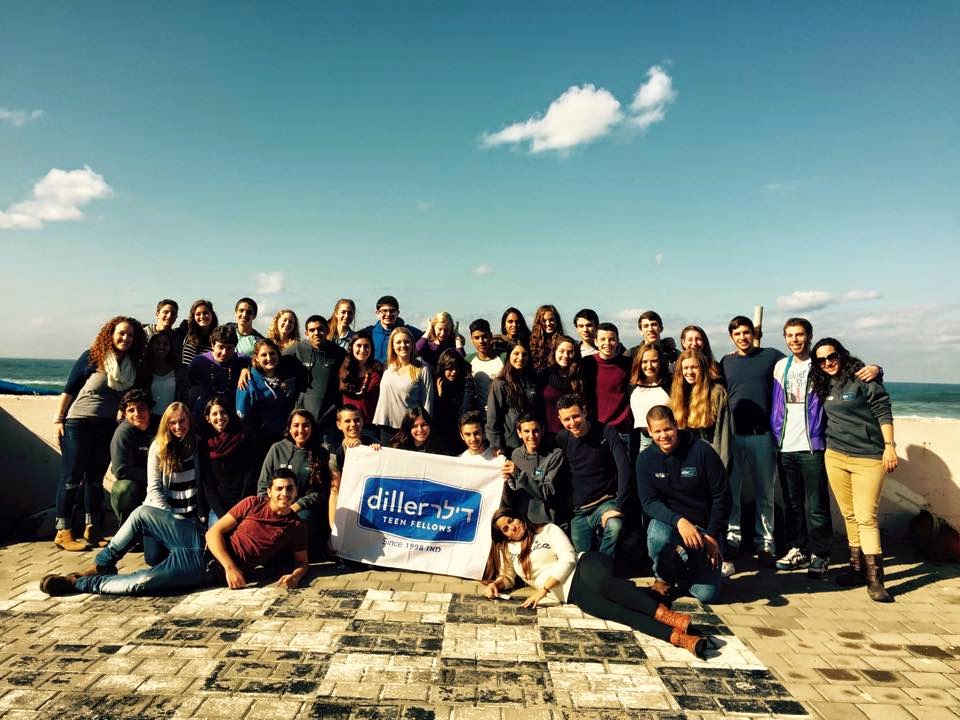After finally getting to sleep in a real bed, we all had to
get up and eat breakfast. We were greeted by two of our Israeli partners who
had come down a little early. After we ate the traditional Israeli breakfast,
we did a quick round of wishes and thoughts on our trip. Everyone was super
excited for the trip, and falafel.

We then met
up with our partners. There was lots of hugging and screaming. Soon we were on
the bus and headed to Bina, a secular yeshiva in South Tel Aviv. It is a place
where non-religious Jews can go and study Jewish texts like the Torah and
Talmud, as well as more modern writings such Israeli poetry and
newspapers. The guide for my group was a
grad student at Tel Aviv University, who was from London. The location in South
Tel Aviv is intentional. South Tel Aviv, which we toured with guides from Bina,
is a very poor neighborhood, and is home to asylum seekers, mostly from Eritrea
and Sudan, foreign workers, and poorer Israelis. We walked to a park, which
only a few years early had been filled with asylum-seekers sleeping and living.
It was now empty, as Israel has built a wall on the Southern border, so
refugees are no longer allowed to cross. Bina, which emphasizes social action,
is very involved in the community. Back at Bina, we talked about the complex
problem of asylum seekers, and what Israel should do about them. In our
discussion, it was framed as a tension between being a Jewish state and
democratic state. Is it more important the Israel remains a haven for Jews or
should it accept everyone? We also compared the problem, with the American
problem of undocumented immigration.

After a
lunch of falafel, we headed to the Diller Mega Event. Every group in the big
auditorium was shouting their cheer loudly. We start with a brief opening
ceremony were some upper level Diller people talked. We then broke into “color
groups” for activities. After a few icebreakers, we talked about family. What
is a family? Who is a family? We then put stickers on a map to represent where
our families and we came from. Though in the first round only one person was
from outside Israel or North America (she was from Ethiopia), within three
rounds we had stickers all over the map.
Then came dinner, which was a mad
house. There was only one falafel station for almost 400 people. There was so
much pushing and shoving that some Dillers, myself including, just decided to
not get any food at all.
Back in the color groups, some
Israeli alumni led programs about “What it means to be a Jew?” They used the
analog of it being a playlist. Every Jew gets to choose what songs, or ideas,
are on their personal playlist. At this point jet lag was hitting most of us
hard, and it didn’t help that the next activity was a concert from an Israeli
folk music band. Most of us were to tired to enjoy it.
At the very end, each person wrote
a six-word story about their Jewish identity. By the end, all of us were very
anxious to get back to the hotel to sleep, and to be prepared for our upcoming
day in Jerusalem.
Katie Wysong cohort 17
.jpg)
.jpg)





























